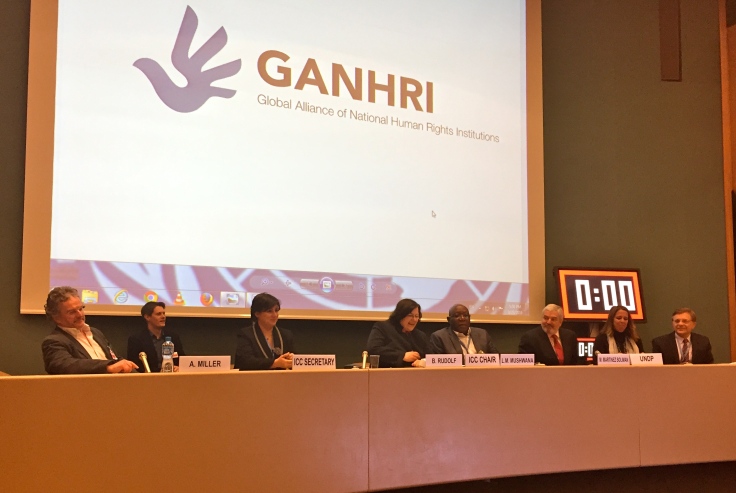In news:
GANHRI in its report released in January 2017 reveals the following
Issues with NHRC.
• Lack of Pluralism: The majority of members in NHRC being from senior judiciary severely restrict the representation of various sections of the society.
Further not enough has been done to ensure “pluralism” in the Commission’s members. This means that more representation from minority communities and from women is needed.
• Political appointments: The chairperson and other members of the NHRCI are appointed by the president based on the recommendation of a committee consisting of the Prime Minister, the speaker of LokSabha, Minister of the Home Affairs, the leader of the opposition in Lok Sabha, the leader of the opposition in Rajya Sabha, and the deputy chairperson of Rajya Sabha.
According to the report the process of selection of the Chairperson and Members comes
across as mere political appointments.
• Issue with deemed members: While the Chairpersons of the National Commission for Minorities, the National Commission for the Scheduled Castes and Scheduled Tribes and the National Commission for Women are deemed Members of the Commission, they rarely attends full statutory commission meetings where decisions on the focus, priorities and core business of the NHRCI’s nonjudicial functions are made.
• Lack of independence: The fundamental requirement of the Paris Principles is that NHRC should be able to operate independent of government interference. However the appointment of staff members at the highest level of NHRC secretariat from the civil service cadre brings into question its capacity to function independently.
• Conflict of interest: The practice of having police officers and former police officers (Director General Investigation) involved in the investigation of human rights violations, where the maximum cases of human rights violations are against police authorities shows a clear conflict of interest. For instance, data from NHRC for 2015-16 show that 30,549 registered on Human Rights Violations were police related and 2544 were jail related human rights cases.
GANHRI (Global Alliance of National Human Rights Institutions):
• The GANHRI is an international association affiliated to the United Nations comprises of national humans rights institutions (NHRIs) from all parts of the globe.
• It is responsible for ensuring that the composition an functioning of NHRIs across the world are in conformity with the Paris Principles.
• As per the GANHRI Statute, only NHRIs that have been accredited by the GANHRI are permitted to represent their respective countries before the UN Human Rights Commission.
Paris Principles
• Adopted in 1993 by the United Nations General Assembly, the Paris Principles set out the minimum international standards for NHRIs.
• The six main criteria that NHRIs require to meet are:
- Mandate and competence: a broad mandate, based on universal human rights norms and standards;
- Autonomy from Government;
- Independence guaranteed by statute or Constitution;
- Pluralism;
- Adequate resources; and
- Adequate powers of investigation.
Way Forward:
- Ensure independence
- In order to ensure independence from government interference the Secretary General be recruited through an open, merit-based selection process.
- In addition to having former police officers investigate complaints, NHRC should ensure civilian oversight of these activities.
- Participation of deemed members: In order to ensure pluralism not just in letter but in spirit, the attendance of the deemed members should be made compulsory.
- Representation to civil society: The rationale for having such a body is to advocate and speak out against Government excesses, neglect or violations. The concept of human rights itself, is seen with respect to State authorities. This necessitates representation to expert members of the civil society, NGOs and other sections of the society.
Therefore, the amendment to the Protection of Human Rights Act, 1993 is a step in right direction to ensure compliance of human rights institutions with the Paris Principle concerning their autonomy, independence, pluralism to effectively protect and promote human rights.


Leave a comment